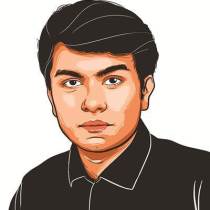Let’s share
The free software and open access movements are among the most important developments after the rise of the world wide web

In this age of digital feudalism, we do not actually own the products we buy, but we are merely granted limited use of them as long as we continue to pay the rent.
Back in 2010, Aaron Swartz, a tech prodigy and political activist, sneaked into a basement closet at the Massachusetts Institute of Technology (MIT) and secretly connected his Acer laptop to the institute’s high-speed internet network. Using MIT’s credentials, he gained access to JSTOR, a digital academic database, and began to download thousands of files. Once a talented entrepreneur, he had renounced the traditional Silicon Valley career path for a non-conformist campaign of rigorous public-interest activism.
But what was his intent behind downloading these articles? He aimed to make these journals openly available to online users as he believed in the fundamental principle of freedom of information. He also believed that those digitised academic documents behind the JSTOR paywall were for public use and that they needed to be liberated by guerrilla action, as he stipulated in his “Guerrilla Open Access Manifesto” in 2008.
Swartz’s antics were detected, and he was soon apprehended. The several million documents he downloaded were never released. In January 2013, the US attorney’s office in Boston indicted him in federal court on 13 felony charges and sentenced him to a statutory maximum of 95 years in prison. Swartz hanged himself in his apartment in Brooklyn. His death drew media attention and can be considered as the lens for reconsidering the entire history of copyright for the digital age. This also marked the emergence of the Free Culture movement.
“Information wants to be free” goes the slogan of the social movement encouraging open-source software, file sharing and a permissive legal environment for modifying and distributing the creative works in the form of open content or free content by using the internet and other forms of media. The free software and open access movements are among the most important developments after the rise of the world wide web. Swartz was not the only internet activist who believed in the concept of an open and free internet. There were people like Richard Stallman, who gave birth to the term “free software”, free as in freedom, not free as in no cost.
The aura of the information age is not just about new ideas but about a shift in the paradigms of communication and control. In this age of digital feudalism, we do not actually own the products we buy, but we are merely granted limited use of them as long as we continue to pay the rent. The radical expansion of intellectual property (IP) rights threatens to reach the point where they suppress any and all other rights of the individual and society. The current copyright laws have hindered creativity and resulted in a read-only internet culture in which we only consume information/content, despite technology advances that make it easy to create and contribute to culture. Copyright law doesn’t extend neatly to the digital world and the digital rights management tools the industry is endeavouring to develop to maintain copyright control are dampening the growth of a rich read-or-write culture.
We need to bring that open-source mentality to the content layer. Two-thirds of all websites run on open-source software, but most of the premium academic resources remain closed behind digital gates. The Directory of Open Access Journals reports that nearly 4,000 publications are available to the masses via the internet, a number that grows rapidly each year. It is essential to liberate data, liberate knowledge — especially data that taxpayers have already paid for.
Thanks to the Free Culture movement, vast knowledge repositories like Wikipedia and Stack Exchange and open access efforts like the science article sharing site arXiv.org have flourished as they permit content to be re-used for free and built upon, and many major websites offer Creative Commons (CC) licensing as part of their user interfaces (UI). In 2012, Google launched a worldwide campaign named Take Action for building a free and open world wide web. Here is the kernel of Google’s argument: “A free and open world depends on a free and open internet. Governments alone, working behind closed doors, should not direct its future. The billions of people around the globe who use the internet should have a voice”.
In India, the campaign for an open and free internet was triggered in 2015, when Airtel planned to charge extra for Voice over Internet Protocol (VoIP) services such as Skype. Airtel also had a tie-up with e-commerce website Flipkart for a platform called Airtel Zero, which primarily gave users free access to Flipkart’s website, while other sites were still charged for access — a practice dubbed “zero rating”. Airtel scrapped the platform as well as the plan following a large-scale public upheaval, which eventually spawned broader discussions and deliberations in India over net neutrality.
Recently, India’s Inter-ministerial Telecom Commission took a landmark decision by agreeing to the recommendations by Telecom Regulatory Authority of India (TRAI) and finally adopting prim Net Neutrality rules (keeping the internet free from corporate and political interests) granting 1.3 billion people equal access to online content. This is consequential for a developing (largest functioning democratic) nation like India as open internet establishes a network of online democracy, innovation and creates a level playing field for everyone.
A free and open culture would enrich our world in immeasurable ways. Let’s take a step closer to a world in which free access to knowledge is a basic human right and sharing is the norm, not the exception.
The writer, 19, studies history at Hans Raj College, Delhi University and is a student fellow of Royal Anthropological Institute, UK
For all the latest Opinion News, download Indian Express App







































No hay comentarios:
Publicar un comentario